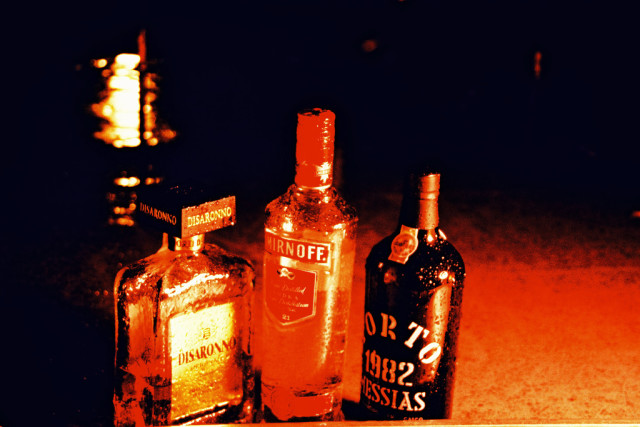The First 1183 Milestone Happens Thursday

News flash: The process of privatizing our liquor is still fraught with unknowns. Photo: Skippyjon via Flickr.
March 1 marks the first significant milestone in our state’s lurch toward liquor privatization. As of Thursday, bars and restaurants can start buying their booze directly from distillers and distributors, rather than the state (the big deadline is June 1, when state-run liquor stores must close and private retailers can begin selling the hard stuff under a whole new set of fees and taxes).
The drinking public shouldn’t see too many dramatic changes just yet, but that’s mostly because the industry still isn’t quite sure how this first step will unfold, or how, exactly, it might raise the price of your negroni.
One local distributor circulated an email last week explaining the changes using the example of a bottle of Voyager gin for a wholesale price of $15.50, less than the current cost of $18.66. But once you add in the sales tax and the fees levied on wholesalers and retailers, a bar ends up paying $19.45 for that same bottle. Many products’ prices are still being finalized.
Distributors have been busy setting up accounts with bars and restaurants. “The hassle is going to be finding out who has what,” says Travis Stanley-Jones, owner of Mulleady’s Pub in Magnolia. He’s largely concerned with specialty items like Vya sweet vermouth or Chartreuse, staples in Mulleady’s cocktail program.
Some brands, like Voyager, have already disappeared from most state-run liquor store shelves, and many staple spirits have been in short supply for weeks. However Steven Stone, president of the Washington Distillers Guild and founder of Sound Spirits, says many bottles are still available at state liquor stores, and are cheaper than buying from a distributor, since liquor stores’ new privatized pricing situation doesn’t kick in until June 1.
Meanwhile, Capitol Hill Seattle blog recently wrote about Oola Distillery owner Kirby Kallas-Lewis and manager Brandon Gillespie’s plan to distribute Oola’s wares to bars and restaurants themselves. In a gesture of solidarity, Rachel Marshall, co-proprietress of nearby bar Montana says she will start using Oola’s gin and vodka in Montana’s popular carbonated kegged cocktails, “making our already amazing fizzy drinks that much more legit” to locally inclined boozers.




